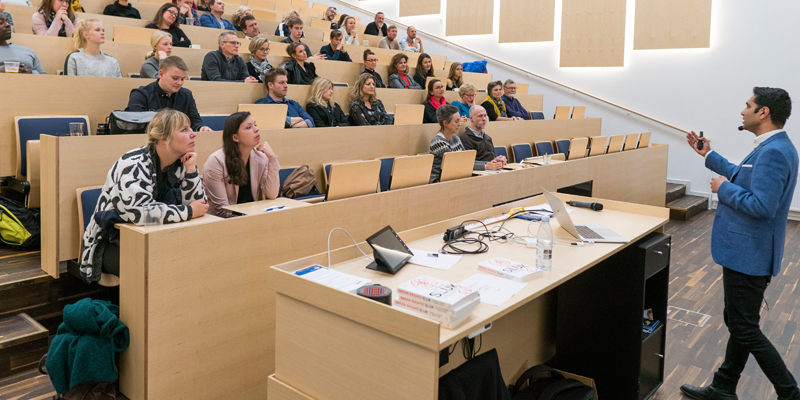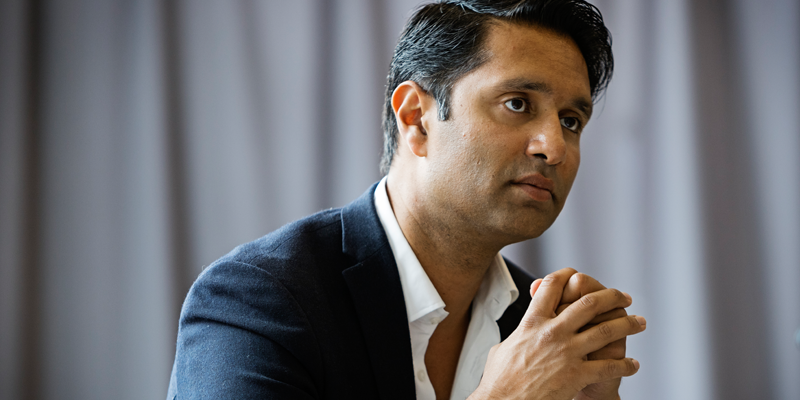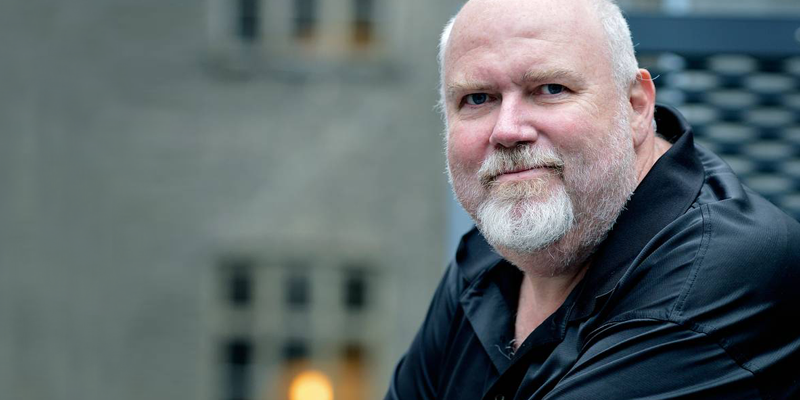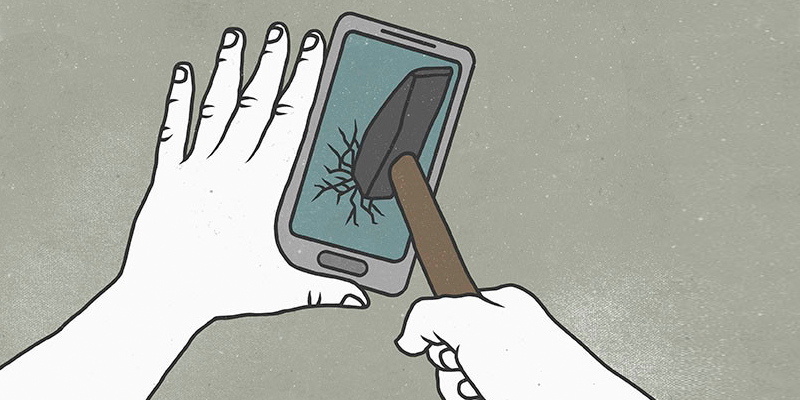
Reading time: 4 Minutes
In an era of increasing ‘digital pollution’, authors Imran Rashid and Soren Kenner offer their five golden tips for recognising the online ‘mind hacks’ that stress us out and avoiding the potentially disastrous side-effects of information overload. Etan Smallman reports
As a business decision-maker, you should be concerned about the impact of online overload on you and your colleagues – and not just because April is stress awareness month.
Digital addiction – particularly social media use – can adversely affect mood and morale. Researchers at the University of Innsbruck in Austria found that volunteers reported feeling less happy after using Facebook, compared with general internet browsing.
Addiction to screens could be affecting your bottom line. One Business Today report found that 13% of total productivity is lost due to time wasted online or on social media.

Co-author Imran Rashid
Here, Imran Rashid and Soren Kenner, the authors of a new book, Offline: Free your mind from smartphone and social media stress, reveal the best strategy for employees to alleviate the side effects of spending their lives online.
-
Have anti-distraction triggers
Rashid and Kenner have coined the term DFRAG, digital fragmentation syndrome, to describe a condition where the human experience of time, space and consciousness is constantly fragmented through digital interactions. The key step to combating this, says Rashid, a qualified family physician, is to create an office infrastructure that has in-built triggers and behaviour patterns to cut through the digital noise.
He compares digital distraction to smoking – in offices, you have clear rules about where you can and can’t light up. “We need the same kind of conditioning when it comes to digital habits,” he says. “If you want to allow people to concentrate, then you have to make a distraction-free working space.”

One idea he recommends is for every employee who works in an open-plan office to have a light on their desk. “When you switch the light on, other people will know, ‘Hey, this guy wants to focus, I shouldn’t disturb him.’”
This also has a positive effect on the individual, encouraging them to take personal responsibility to digitally switch off while they complete a task and are more available. “After all, we know that about 50 per cent of all the distractions in a workplace are self-inflicted,” explains Rashid. “We have developed a behaviour where we distract ourselves.”
-
Schedule digital detox breaks
Co-author and online marketeer and entrepreneur Soren Kenner recommends starting your day not just with a to-do list of tasks, but with a schedule for when you access – and when you block yourself from accessing – the most potent digital distractions. These include social media, casual gaming and even email.
“For example, you could agree to a schedule that enabled emails from 9am to 11am and again from 4pm to 5pm and blocks social media except for a designated time block during lunch and perhaps a short period at the end of the day,” he says. “Doing so would lead to increased productivity and ability to focus.”
-
Make important decisions early in the day
Being constantly online creates what psychologists call “decision fatigue”, which leads to “worse decisions the longer you go on,” says Kenner.
“It refers to the fact that making decisions burns finite resources. That is because the process involves neurotransmitters and hormones that take some time to replenish, and therefore the more decisions you have to make in a day, the poorer they will generally be.”
-
Minimise the amount of choices you need to make
Another solution is to reduce the number of decisions you make in a day. The average person is thought to process about 35,000 in 24 hours.
You could start by jettisoning deliberation over your clothes and your meals. Having the same office lunch every day may seem boring to some, but it leaves you more brain space to focus on important business decisions.

Co-author Soren Kenner
Kenner says: “Notably, major politicians and businessmen, such as former United States President Barack Obama, Steve Jobs, and Mark Zuckerberg, have been known to reduce their everyday clothing down to one or two outfits in order to limit the number of decisions they make in a day.” President Obama has said himself: "I’m trying to pare down decisions. I don’t want to make decisions about what I’m eating or wearing because I have too many other decisions to make."
-
Focus on the positives
Finally, in order to bring about meaningful and sustainable change, Rashid says bosses need to focus “on what you want to achieve instead of what you’re taking away”. He explains: “You have to focus on the positive sides of what you want to accomplish and that could be creating some specific rules for how you want to deal with specific situations. For instance, if you implement a mobile ban in workplaces, people would start focusing on what they are missing.

“Instead, explain that you want a workplace with more closeness, better relations and clearer communication and with meetings that are not filled with distracted minds. Once you have the structural conditions in place, then the final parts will be a lot easier, which are the individual choice and the ‘group habits’, also known as the company culture. This increases the chances of longer-lasting changes.”
Rashid and Kenner believe these five tips could ameliorate everything from stress to sleep disturbance to lack of focus at work – if only we can short-circuit the addictive design mechanisms crafted by the tech giants. Their mission statement is simple: We should all be “regaining mastery of the device that has attained mastery over us” and make technology “human-centric” once more.
Etan Smallman is a British journalist, whose work has been published in newspapers including The Guardian, The Times, The Daily Telegraph and The South China Morning Post.
Discover how Regus can help you maximise your productivity


